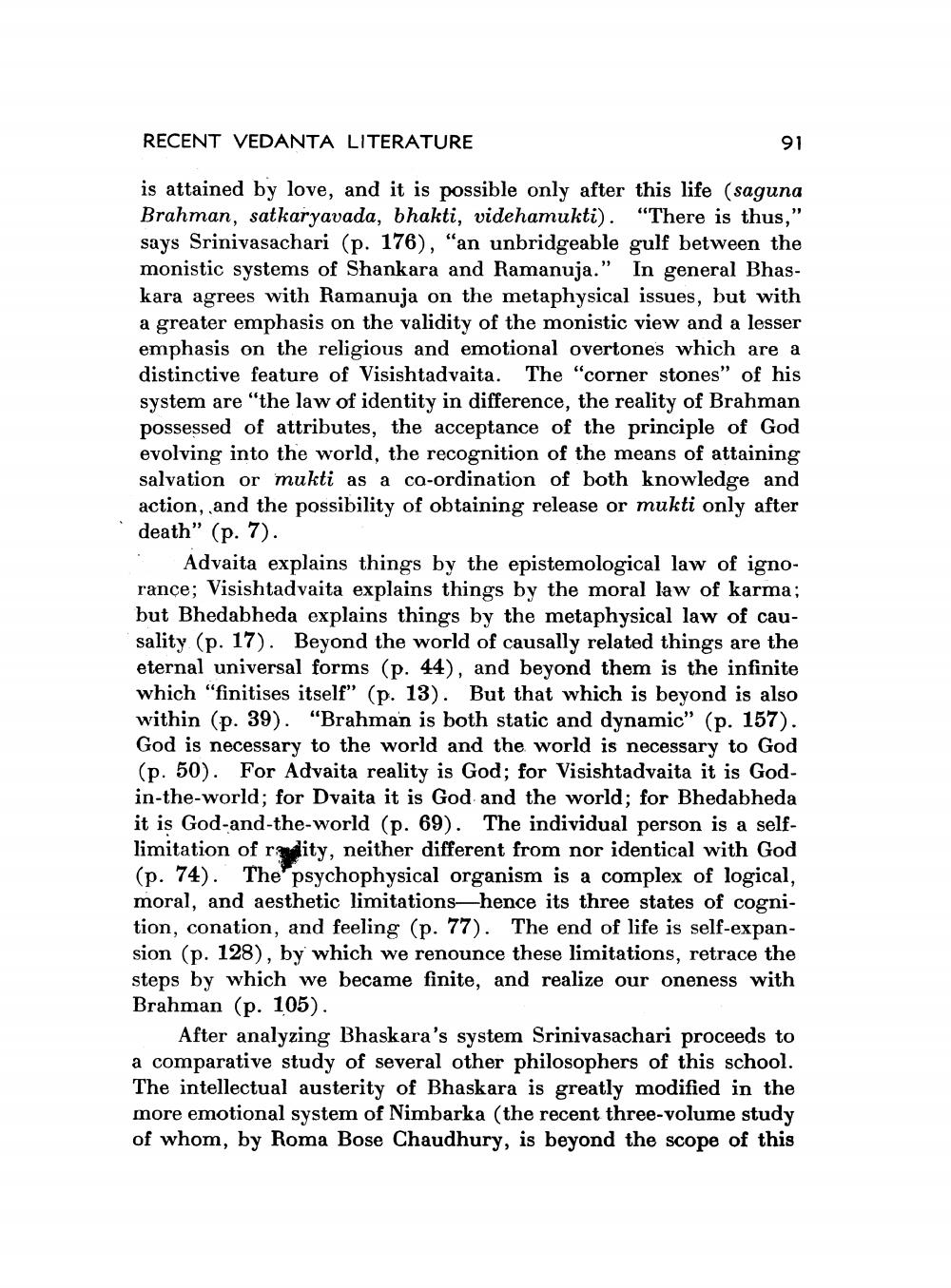________________
RECENT VEDANTA LITERATURE
91
is attained by love, and it is possible only after this life (saguna Brahman, satkaryavada, bhakti, videhamukti). "There is thus," says Srinivasachari (p. 176), "an unbridgeable gulf between the monistic systems of Shankara and Ramanuja.” In general Bhaskara agrees with Ramanuja on the metaphysical issues, but with a greater emphasis on the validity of the monistic view and a lesser emphasis on the religious and emotional overtones which are a distinctive feature of Visishtadvaita. The "corner stones” of his system are "the law of identity in difference, the reality of Brahman possessed of attributes, the acceptance of the principle of God evolving into the world, the recognition of the means of attaining salvation or mukti as a co-ordination of both knowledge and action, and the possibility of obtaining release or mukti only after death” (p. 7).
Advaita explains things by the epistemological law of ignorance; Visishtadvaita explains things by the moral law of karma; but Bhedabheda explains things by the metaphysical law of causality (p. 17). Beyond the world of causally related things are the eternal universal forms (p. 44), and beyond them is the infinite which "finitises itself” (p. 13). But that which is beyond is also within (p. 39). "Brahman is both static and dynamic" (p. 157). God is necessary to the world and the world is necessary to God (p. 50). For Advaita reality is God; for Visishtadvaita it is Godin-the-world; for Dvaita it is God and the world; for Bhedabheda it is God-and-the-world (p. 69). The individual person is a selflimitation of r ity, neither different from nor identical with God (p. 74). The psychophysical organism is a complex of logical, moral, and aesthetic limitations—hence its three states of cognition, conation, and feeling (p. 77). The end of life is self-expansion (p. 128), by which we renounce these limitations, retrace the steps by which we became finite, and realize our oneness with Brahman (p. 105).
After analyzing Bhaskara's system Srinivasachari proceeds to a comparative study of several other philosophers of this school. The intellectual austerity of Bhaskara is greatly modified in the more emotional system of Nimbarka (the recent three-volume study of whom, by Roma Bose Chaudhury, is beyond the scope of this




